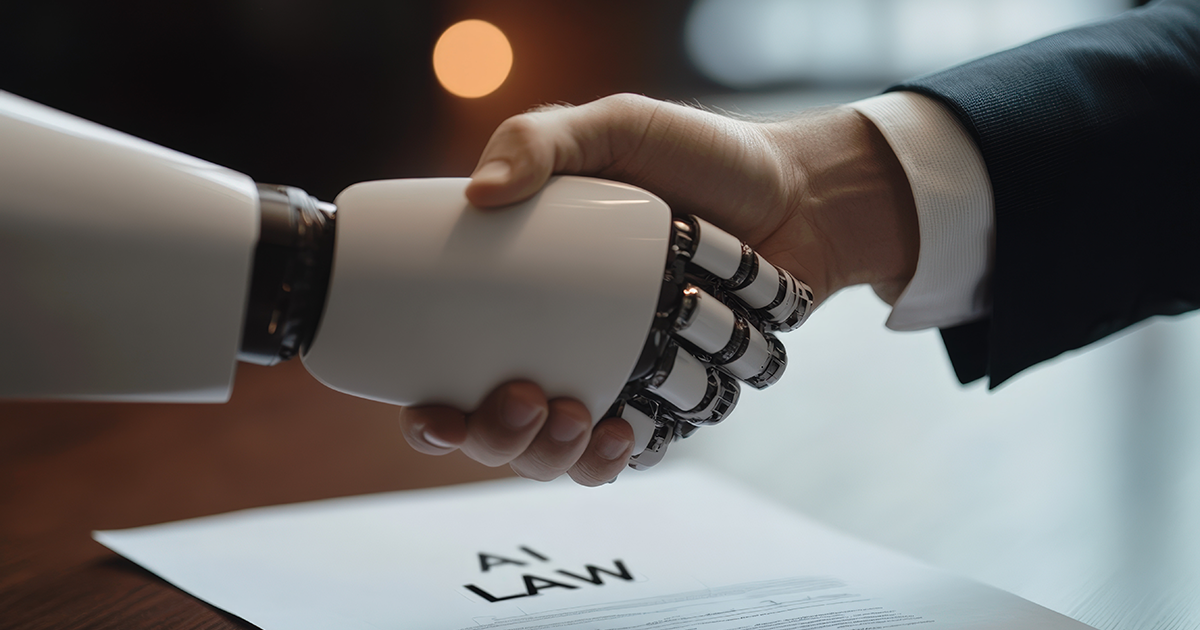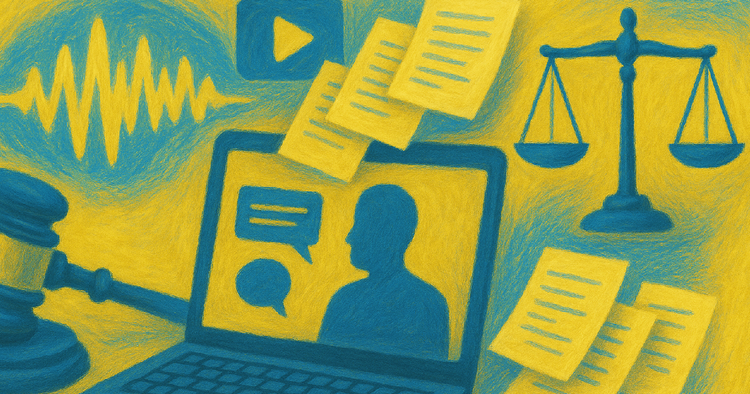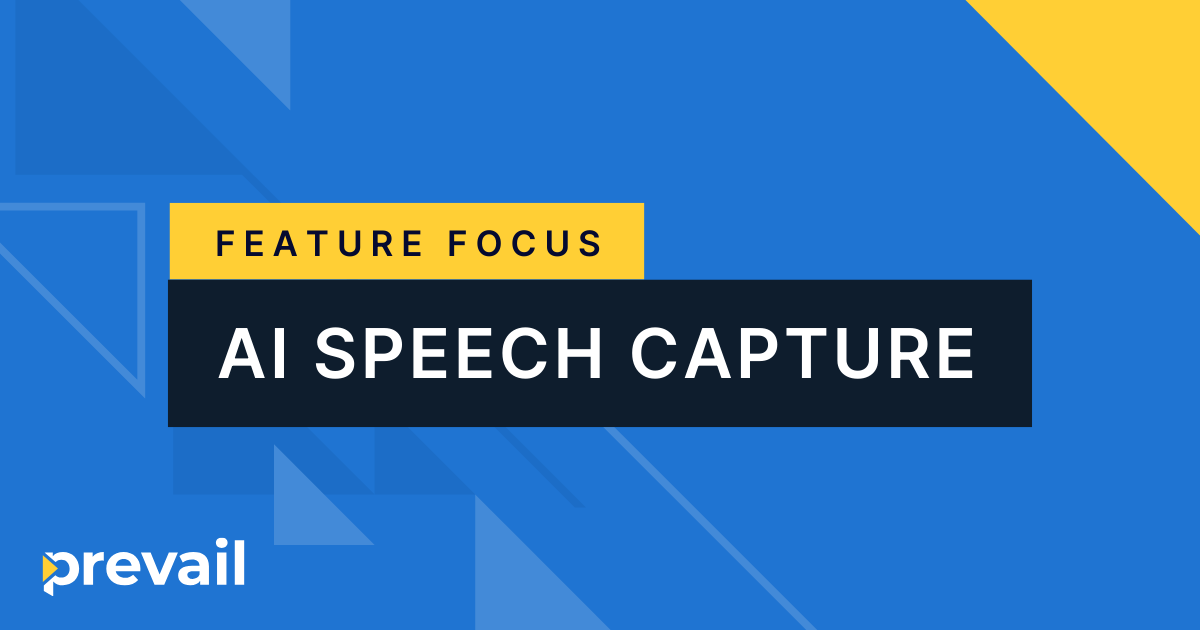Ethical Considerations in AI-Driven Legal Services

Artificial Intelligence (AI) has quietly but swiftly entered the legal industry, reshaping how legal professionals operate. On one hand, AI tools promise unprecedented efficiency—transforming legal research, expediting case analysis, and automating document preparation. What once took hours or days can now be done in minutes. But behind this rapid innovation lurks a critical question: How do we ensure these new tools operate ethically?
Legal decisions hold immense power, influencing lives and livelihoods. When AI is involved, the stakes rise even higher. Can we trust an algorithm not to perpetuate bias? Will sensitive client data be protected? And what happens when an AI-influenced decision goes wrong? As legal professionals rely on these systems, the ethical implications become impossible to ignore. Navigating these ethical considerations is becoming more pressing as legal professionals increasingly use AI to assist in their work.
The Role of AI in Legal Services
AI is transforming how legal professionals approach their work, particularly in data-intensive areas like legal research and eDiscovery. What once required entire teams of legal professionals to manually comb through documents now takes a fraction of the time. AI-powered tools can scan thousands of contracts, cases, and legal briefs with remarkable precision, pulling out relevant data at speeds no human could match. This isn’t just about speed, though: AI also improves accuracy, catching subtle details that might be missed in a manual review.
AI-powered tools can streamline a plethora of tasks for legal research, contract analysis, and eDiscovery by:
- Enhancing accuracy and speed of document review
- Automating data tagging and predictive coding, increasing efficiency
- Reducing costs through faster collaboration among legal teams
The cost-saving potential here is significant—AI reduces billable hours spent on repetitive tasks, opening the door to more affordable legal services and giving more people access to legal representation.
However, just as AI revolutionizes legal work, it raises profound ethical questions. As AI-powered legal tech becomes more deeply integrated into legal practice, understanding these challenges is just as crucial as understanding the tools themselves.
Ethical Challenges of AI-driven Tools
While AI offers transformative potential for legal services, it also brings significant ethical challenges. One of the most pressing is bias. AI systems learn from historical data; if that data is skewed, the algorithms can perpetuate inequality. This could lead to biased outcomes in case assessments or hiring, disproportionately affecting marginalized groups.
Another issue is accuracy. AI is powerful but not infallible. "AI hallucinations"—when systems produce incorrect or misleading outputs—can result in serious legal consequences, from faulty filings to misguided legal advice. The risks of relying on flawed AI outputs could damage client trust and expose firms to liability.
Transparency, or the lack of it, is equally concerning. Some AI tools operate as a "black box," with their decision-making process unclear even to their developers. This lack of accountability is troubling in an industry like law, where transparency is essential for justice. Addressing these challenges is critical to ensuring AI enhances, rather than undermines, legal integrity.
Client Confidentiality and Data Privacy
When legal professionals handle sensitive client information, trust is imperative. Yet, in the world of AI-driven legal tools, that trust can be put to the test. AI systems rely heavily on vast amounts of data to function effectively. In law, this means processing confidential documents, private communications, and sensitive case details. But as with any data-dependent technology, the risks of data breaches and improper handling loom large. A breach could expose not only personal information but also critical case strategies or privileged communications, compromising the integrity of the legal process.
One primary concern is that some AI models, particularly those used in eDiscovery or contract analysis, process large amounts of data in cloud environments. While cloud storage offers efficiency and accessibility, it also introduces vulnerabilities, particularly if these environments lack proper encryption or oversight. The risk isn’t just hypothetical; real-world examples highlight the dangers of AI systems unintentionally exposing sensitive information through improper data usage.
To mitigate these risks, AI service providers should comply with stringent privacy regulations. Legal firms must prioritize solutions offering robust encryption, role-based access controls, and compliance with security standards like SOC 2 and ISO 27001. Ultimately, protecting client confidentiality in an AI-driven world requires more than using the latest technology; it demands a relentless focus on data security at every step.
Professional Responsibility and AI Integration
Integrating AI into legal practice comes with professional responsibilities that lawyers can’t afford to ignore. At the core of these responsibilities is the duty of competence. The American Bar Association’s Model Rule 1.1 emphasizes that lawyers must maintain the requisite knowledge and skill to competently represent their clients, including understanding the technology they use. This means that AI, while a powerful tool, can’t be a black box for lawyers to outsource their judgment to. Legal professionals must understand how AI tools work, their limitations, and their potential risks.
There is also the question of balance. While AI can enhance efficiency and accuracy, relying too heavily on it can undermine the lawyer's role as a critical thinker and advisor. The human element in legal analysis is irreplaceable. Outsourcing too much decision-making to AI threatens to compromise ethical obligations like diligence and independent judgment. Clients trust their attorneys to provide tailored advice, and AI’s role must remain supplementary, no matter how advanced.
Furthermore, AI integration touches upon the lawyer-client relationship. Trust, confidentiality, and competence are the foundation of this relationship. Lawyers must know how AI processes client information and ensure that this technology upholds the ethical standards that clients and the legal community expect.
Ensuring Ethical Use of AI in Legal Practice
Ensuring the ethical use of AI in legal practice is not just a matter of following best practices—it requires ongoing vigilance and a robust framework. To begin with, human oversight is indispensable. AI tools can automate many tasks but cannot replace the critical judgment and ethical decision-making that lawyers provide. Regular auditing of AI tools is crucial to ensure these systems function as intended. This means testing for accuracy, detecting potential biases, and continually reviewing security measures to protect sensitive client information.
Maintaining security standards should be non-negotiable. AI systems must comply with strict protocols, such as SOC 2 and ISO 27001, to protect legal data from breaches and misuse. Regular updates to these security measures and bias mitigation strategies can help reduce the likelihood of AI perpetuating or amplifying systemic inequalities.
Additionally, as AI becomes more integrated into legal services, regulatory frameworks must evolve to address new challenges. Policymakers must work closely with legal professionals and technologists to develop standards that ensure AI’s use aligns with legal ethics. This collaboration will safeguard the profession’s integrity and the public’s trust in the legal system. Only through constant evaluation, adaptation, and cooperation can the legal industry harness AI’s potential while adhering to its ethical obligations.
Ethical AI: Navigating the Future of Law
As artificial intelligence continues to reshape the legal ecosystem, its benefits—enhanced efficiency, accuracy, and accessibility—must be balanced with careful ethical consideration. AI can transform legal services, but only when used responsibly. Bias, transparency, and data security are just a few of the critical issues that must be addressed to ensure that AI tools protect the integrity of the legal process.
Lawyers must understand the tools they use, ensuring that AI supplements—rather than replaces—human judgment and ethical decision-making. Regular auditing, compliance with security standards, and collaboration between legal professionals and technologists are key to mitigating risks like bias and data breaches. Moreover, the legal industry must stay agile, evolving regulatory frameworks to keep pace with AI’s rapid development.
Ultimately, navigating these challenges will allow the legal profession to harness AI’s potential while upholding trust, competence, and fairness. The future of AI in law is promising, but a steadfast commitment to ethical principles must guide it.




